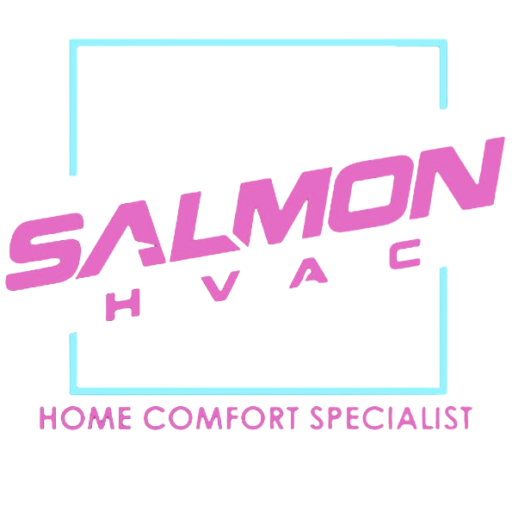Keeping your home comfortable year-round often comes with a high price tag if your HVAC system is outdated or inefficient. Heating and cooling can account for nearly half of a household’s energy use, making it one of the most important areas to address when looking for cost savings. By upgrading to energy-efficient HVAC solutions and adopting smart maintenance habits, you can enjoy consistent comfort while cutting back on utility bills.
In this guide, we’ll explore the latest innovations, practical homeowner strategies, and cost-saving incentives that can help you maximize efficiency. Whether you’re upgrading a furnace, considering a smart thermostat, or improving your home’s insulation, the right steps can make a dramatic difference in both comfort and savings.
Why Energy Efficiency Matters in HVAC Systems
Every season places unique demands on your HVAC system. In the winter, heating is a necessity as cold temperatures drive energy use higher. In summer, air conditioning often works overtime to battle high heat. Without efficient equipment, these seasonal shifts can cause energy costs to spike.
Efficiency isn’t just about reducing utility bills. It also affects the environment and the lifespan of your system. An optimized HVAC unit operates more smoothly, reduces strain on components, and minimizes unnecessary energy waste. For homeowners, this translates into fewer repairs, longer system life, and cleaner indoor air.
Smart Technology for Smarter Comfort
One of the biggest breakthroughs in modern HVAC solutions is the rise of smart technology.
Smart Thermostats
Smart thermostats learn your habits and adjust heating or cooling accordingly. For example, the system can lower the temperature while you’re at work and warm the house before you return. With mobile app controls, you can make changes from anywhere. Homeowners often report savings of up to 30 percent after making the switch.
High-Efficiency Furnaces and AC Units
Replacing older equipment with Energy Star-rated models makes a noticeable impact. A high-efficiency furnace can achieve over 90 percent fuel utilization efficiency, compared to older models that may only reach 65 percent. Similarly, modern air conditioners with variable-speed compressors deliver consistent cooling while using less electricity.
These upgrades may require upfront investment, but the energy savings and long-term reliability quickly offset the cost. Salmon HVAC specializes in helping homeowners choose the right equipment for maximum efficiency.
Practical Strategies for Homeowners
Even without new equipment, simple steps can improve HVAC efficiency.
- Routine maintenance: Schedule annual inspections to keep components clean and functioning properly. Replace or clean filters every 1–3 months for optimal airflow.
- Clear airflow: Keep outdoor units free of leaves, dirt, and debris. Inside, make sure vents aren’t blocked by furniture.
- Proper ductwork: Leaky ducts waste energy and reduce air quality. Professional duct cleaning and sealing improve efficiency.
- System sizing: Installing the right-sized HVAC system is critical. Units that are too large or too small will run inefficiently, shorten their lifespan, and drive up bills. A professional assessment, such as a Manual J calculation, ensures the correct fit for your home.
Maximizing Savings Through Incentives
Energy-efficient upgrades don’t have to break the bank. Many homeowners qualify for rebates, tax credits, or financing options that reduce upfront costs.
- Tax credits: Federal tax incentives are available for certain Energy Star-rated systems.
- Utility rebates: Local utility companies in Utah often offer cash-back programs for upgrading to energy-efficient furnaces or air conditioners.
- Financing options: Some contractors, including Salmon HVAC, provide financing plans to spread out costs while you immediately benefit from lower energy bills.
Checking for these incentives before you purchase can result in hundreds or even thousands of dollars in savings.
Comfort Beyond Temperature
Efficiency is not just about cutting energy use. A well-designed HVAC system also balances humidity, improves air circulation, and filters out pollutants. Advanced features like zone control and variable-speed fans allow you to customize comfort room by room while keeping energy waste low.
Better air quality is another benefit. Systems with enhanced filtration can reduce dust, pollen, and allergens, making your home healthier. Investing in energy efficiency means creating a home environment where you can relax in comfort year-round.
Conclusion
Energy-efficient HVAC solutions bring multiple benefits to your home: lower utility costs, improved comfort, reduced environmental impact, and a healthier living space. By choosing modern systems, adopting smart technology, and following good maintenance practices, you set your household up for years of reliable performance.
Salmon HVAC is here to guide you through every step, from system selection to installation and ongoing maintenance. With the right solutions in place, you can enjoy peace of mind knowing your home is comfortable and your energy dollars are well spent.
FAQ: Energy-Efficient HVAC in Utah
What are the benefits of upgrading to an energy-efficient HVAC system?
Upgrading reduces monthly utility bills, provides more consistent comfort, and lowers your carbon footprint. Many systems also offer advanced air filtration and humidity control.
How can I tell if my current HVAC system is inefficient?
If your system is more than 10–15 years old, makes frequent repairs necessary, or causes unusually high energy bills, it may be time to upgrade. Checking SEER ratings and AFUE ratings can also give you an idea of efficiency.
What energy-efficient HVAC options work best for Utah homes?
Popular choices include variable-speed furnaces, high-efficiency air conditioners, ductless mini-splits for zoned comfort, and geothermal systems. Smart thermostats are also a cost-effective upgrade.
How often should I service my HVAC system?
It’s best to schedule professional maintenance at least once per year, ideally before the heating or cooling season begins. Changing filters regularly and keeping units clean between visits also helps efficiency.
Are there rebates or tax credits available in Utah?
Yes, Utah homeowners may qualify for utility rebates, state incentives, and federal tax credits for installing energy-efficient HVAC systems. Contact your utility provider or consult with Salmon HVAC for the most up-to-date information.

